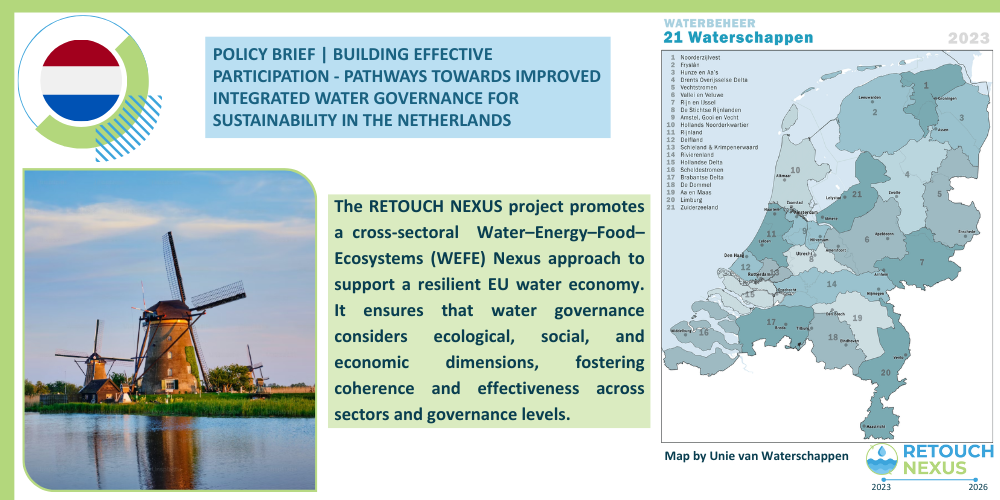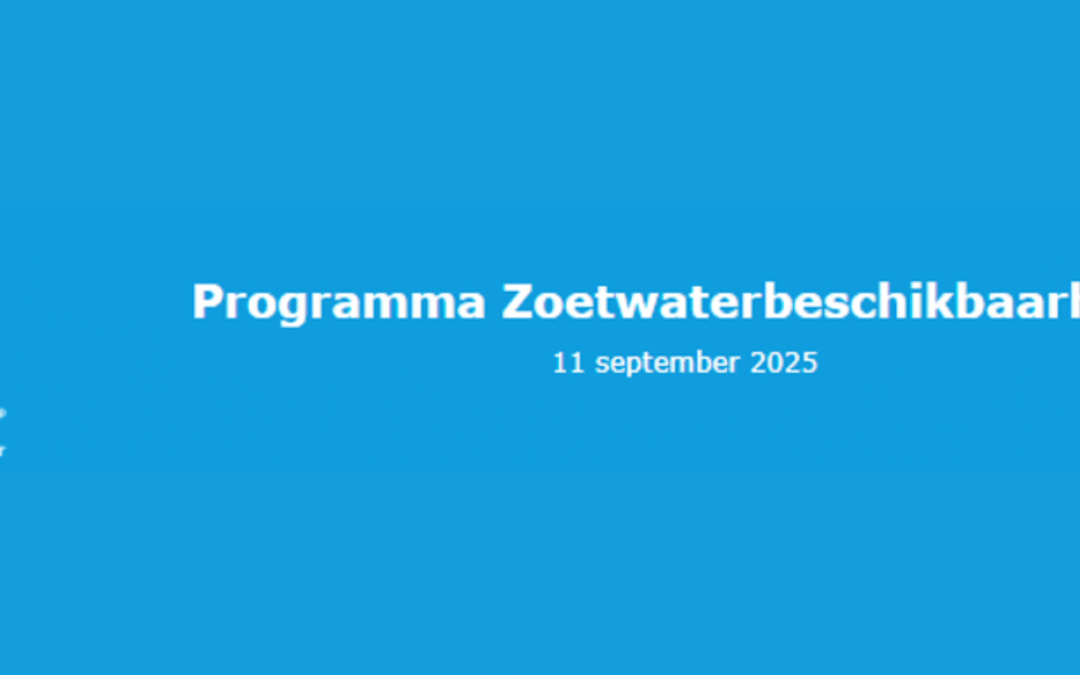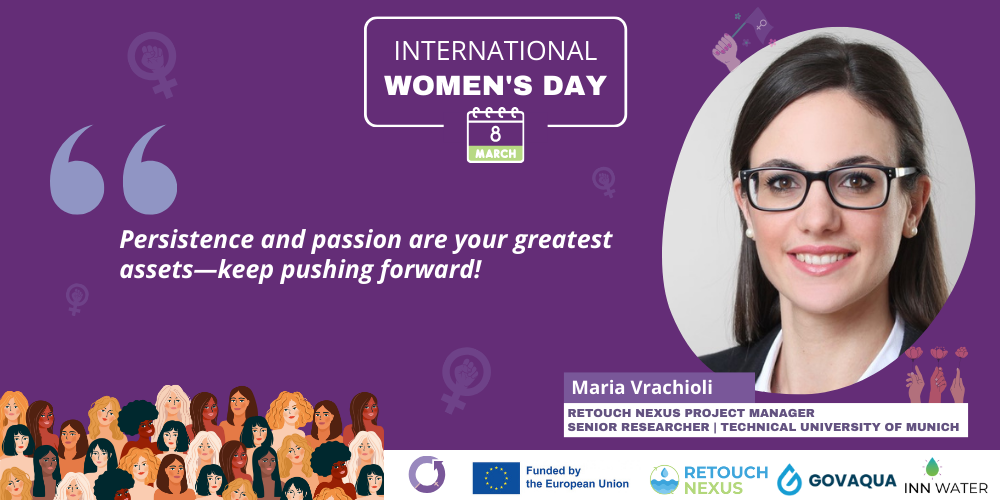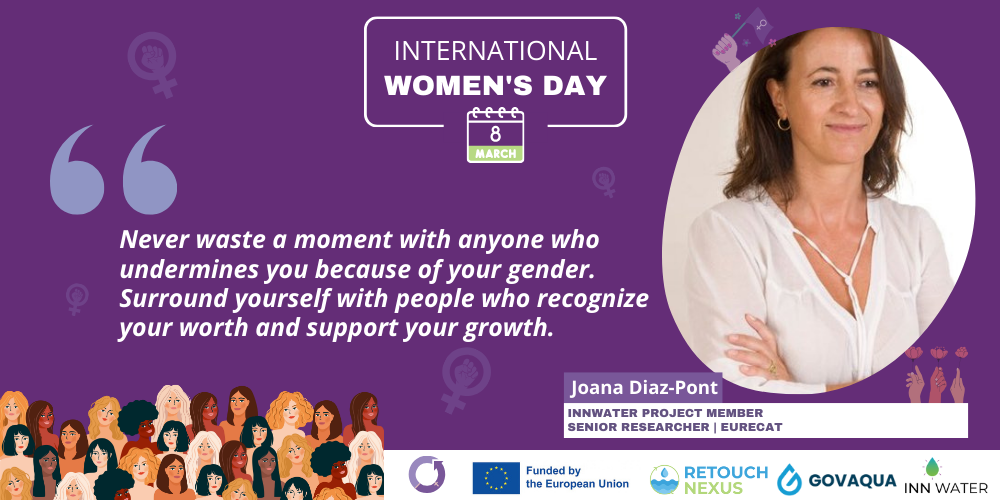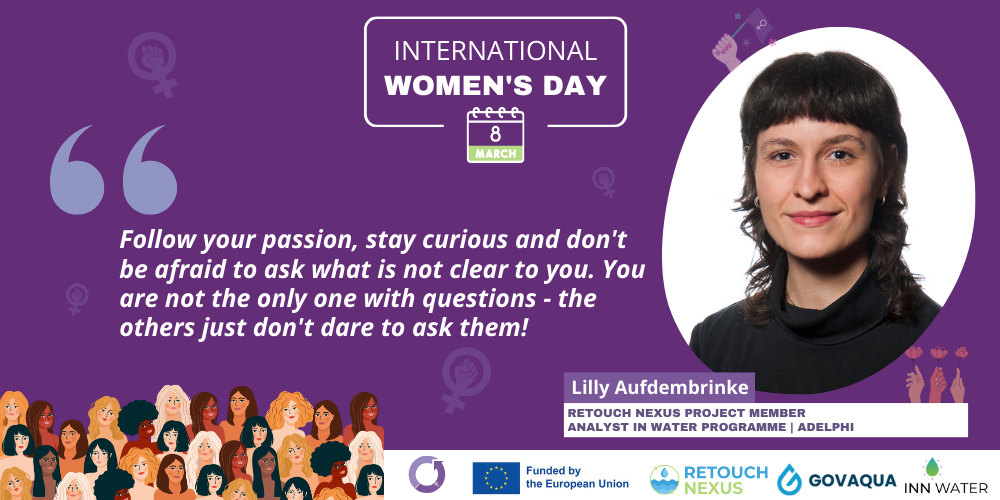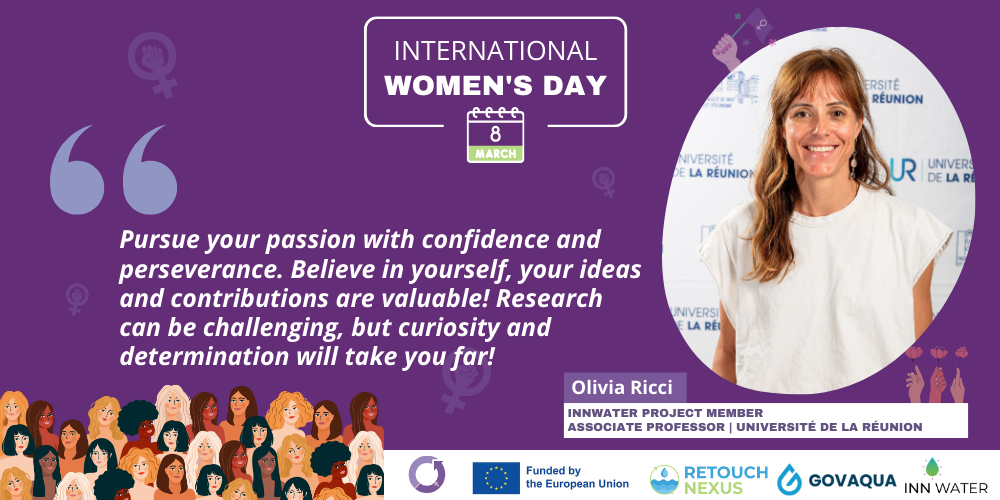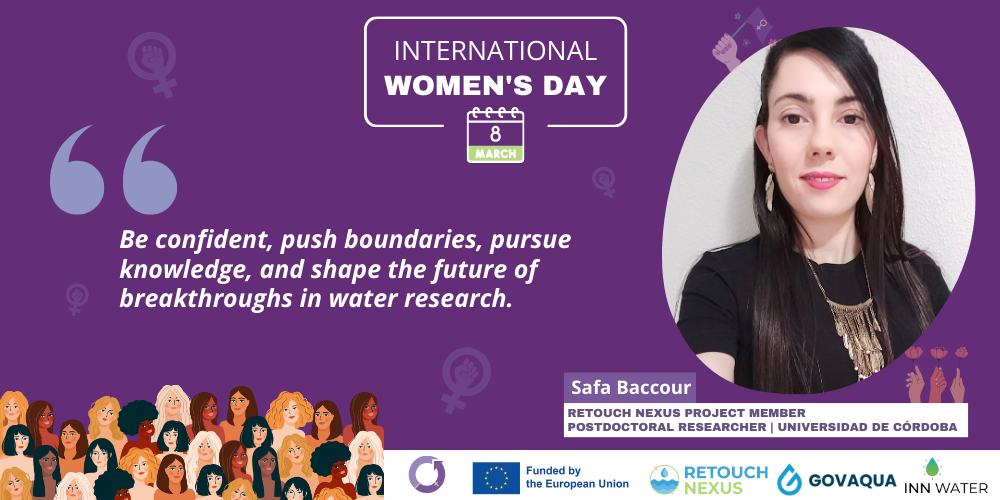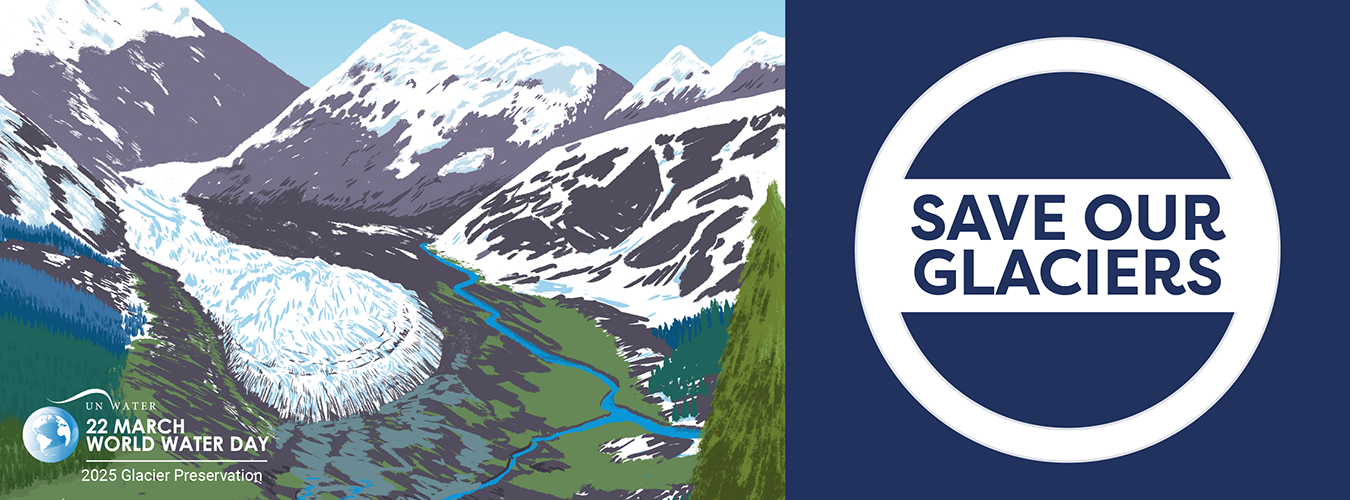Water scarcity is an increasingly pressing issue in the Netherlands, driven by the dual challenges of climate change and declining water quality.
In a recent publication in Economisch Statistische Berichten (ESB) on December 4, 2024, Leon Bremer and Erik Ansink from Vrije Universiteit Amsterdam (VUA), partners in the RETOUCH-NEXUS project, delve into these challenges and propose actionable solutions to safeguard the country’s drinking water supply.
Rising Risks of Water Shortages
The Netherlands, traditionally known for its water abundance, faces a paradoxical situation: increasing droughts and declining water quality are putting the nation’s drinking water supply at risk. Climate change is exacerbating these issues, with prolonged dry spells and unpredictable weather patterns straining already limited resources. Legal and environmental constraints further restrict the scope of supply-side solutions, such as extracting more water or expanding infrastructure.
The Role of Pricing: A Limited Solution
One intuitive approach to addressing water scarcity is raising the price of drinking water to curb demand. However, Bremer and Ansink argue that this solution has significant limitations. Water consumption is relatively inelastic—households and businesses cannot easily reduce their water use in response to price increases without adequate alternatives. This limits the potential of pricing strategies to achieve meaningful reductions in water demand.

Strategic Pathways Forward
To tackle the growing water scarcity challenge, the RETOUCH-NEXUS project emphasizes a multifaceted approach:
Investing in Water-Saving Technologies: Advancing technologies that enable more efficient water use in households, agriculture, and industry is essential. Innovations such as smart irrigation systems, water-efficient appliances, and improved industrial processes can significantly reduce water consumption.
Promoting Behavioral Change: Public awareness campaigns and incentives can encourage individuals and businesses to adopt water-saving practices. Simple measures, such as fixing leaks, using water-efficient fixtures, and reducing outdoor water use, can collectively have a substantial impact.
Strategic Industry Choices: Policymakers need to prioritize water-intensive sectors and activities, ensuring that water use aligns with national sustainability goals. Supporting industries that adopt water-efficient practices and re-evaluating those with high water footprints are crucial steps.
The Way Forward
The Dutch case study presented by Bremer and Ansink highlights the urgent need for an integrated approach to water management. While price mechanisms have their place, they must be complemented by investments in technology, public engagement, and policy innovation. Through such measures, the Netherlands can build resilience against water scarcity and ensure sustainable access to drinking water for future generations.
The RETOUCH-NEXUS project continues to explore these themes, fostering collaboration among researchers, policymakers, and industry stakeholders to address the complex nexus of water, energy, and climate challenges.
New Policy Brief: Building Effective Participation in Dutch Water Governance
Integrated Water Governance in the Netherlands The Netherlands faces increasingly complex water challenges driven by climate change, polluted waterways, soil…
Informative evening for HHNK’s Freshwater Availability Programme
On Thursday, 11 September, the water authority Hoogheemraadschap Hollands Noorderkwartier (HHNK) held an information evening as part of the public…
🤝 Building a Participatory Path for Water Governance in North Holland
RETOUCH NEXUS supports stakeholder engagement for the Freshwater Availability Program. In response to the growing threat of water scarcity in…
Water is life, and Europe is facing an urgent need to protect this vital resource.
On 3 June 2025, the European Commission presented the European Water Resilience Strategy, the EU’s first-ever comprehensive plan to address the…
International Women’s Day: let’s celebrate our female researchers! Interview with Maria Vrachioli
Together with our sister projects of the Water Governance 2027 Synergy Group, GOVAQUA and InnWater, we are delighted to dedicate…
International Women’s Day: let’s celebrate our female researchers! Interview with Joana Diaz-Pont
Together with our sister projects of the Water Governance 2027 Synergy Group, GOVAQUA and InnWater, we are delighted to dedicate…
International Women’s Day: let’s celebrate our female researchers! Interview with Lilly Aufdembrinke
Together with our sister projects of the Water Governance 2027 Synergy Group, GOVAQUA and InnWater, we are delighted to dedicate…
International Women’s Day: let’s celebrate our female researchers! Interview with Olivia Ricci
Together with our sister projects of the Water Governance 2027 Synergy Group, GOVAQUA and InnWater, we are delighted to dedicate…
International Women’s Day: let’s celebrate our female researchers! Interview with Safa Bacour
Together with our sister projects of the Water Governance 2027 Synergy Group, GOVAQUA and InnWater, we are delighted to dedicate…
RETOUCH NEXUS Project Celebrates World Water Day: Join the Movement!
Water is at the heart of life, and as climate change accelerates, protecting our frozen water resources is more urgent…


